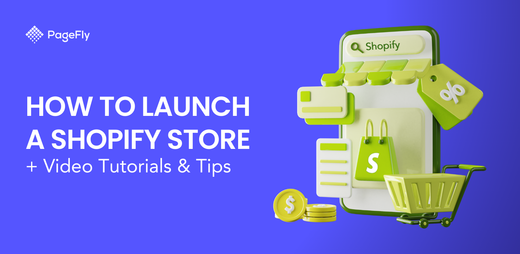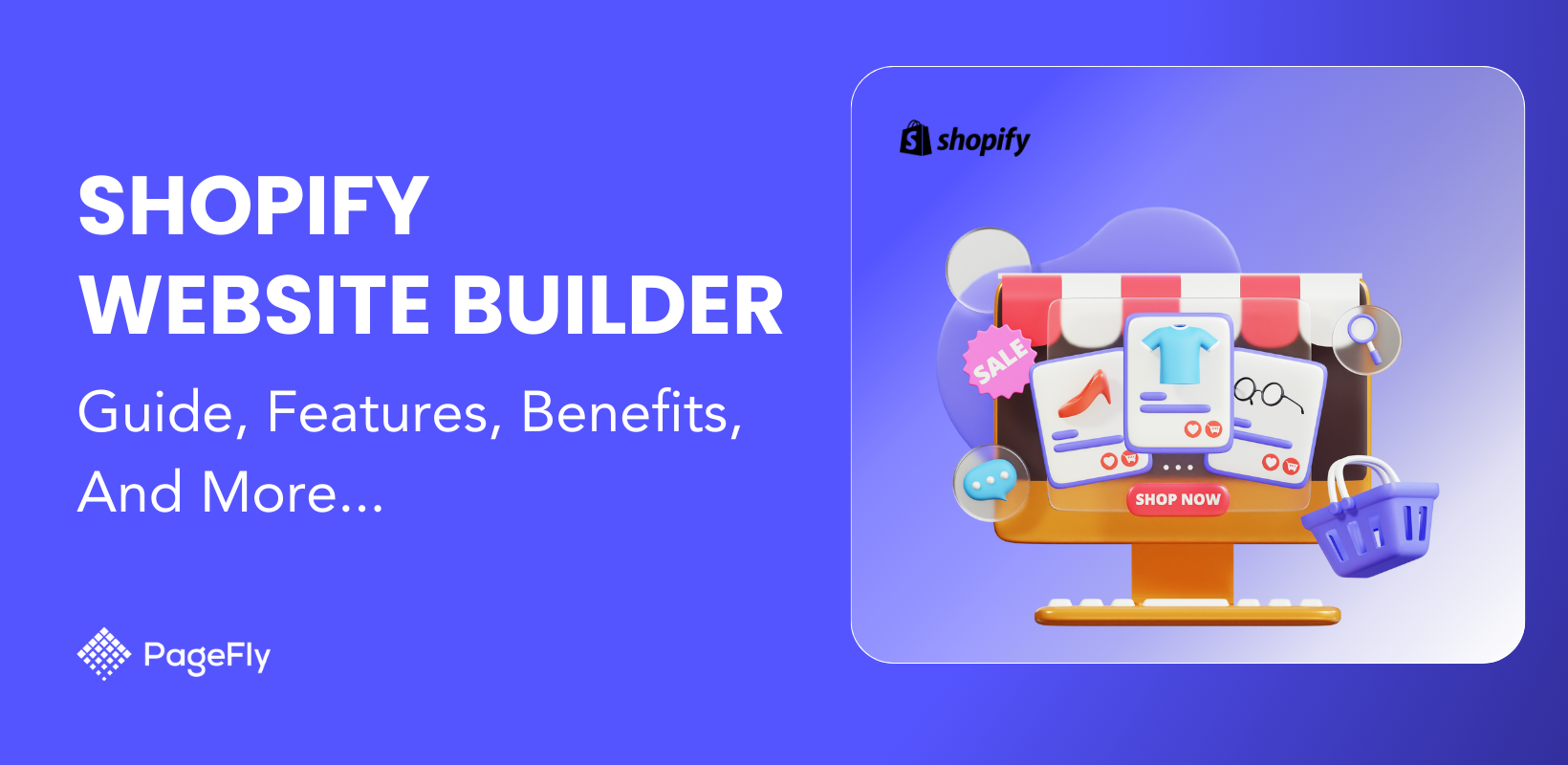The hassles of building a Shopify store from scratch puts you and countless other merchants off from entering the eCommerce market. That’s what you’re looking for a much more time-saving workaround - Shopify store for sale, and the market definitely offers it in various industries.
However, buying a pre-made store isn't truly "ready-to-go" as you may think. Let’s find out thoughtful considerations related to Shopify stores for sale, the buying process, and the customization of new Shopify stores.
An Explicit Concept of a “Shopify Store for Sale”
Let's clarify one thing from the outset: When we talk about “Shopify stores for sale", we're delving into the realm of fully operational online businesses ready for immediate ownership and operation. It goes beyond mere setup services, generic templates, or Dropshipping.
If you search for pre-made Shopify stores, you’ll see different levels of options out there: from simple pages with pre-built websites and fundamental eCommerce features set, to established branding, and even existing traffic and customers. The choice is in your hands, but choose carefully to define what can truly fit your business plan.
Types of Shopify stores for sale

Shopify eCommerce stores come in various models with different purposes, including 4 main types: print-on-demand stores, dropshipping, wholesale and retail businesses.
Before choosing one suitable for your business, let’s get to know some key types of Shopify stores:
Print-on-demand businesses
Print-on-demand (POD) Shopify business offer custom-designed merchandise that is printed on-demand, typically when an order is placed. These stores often specialize in apparel, accessories, home decor, or other personalized products. With POD, you can create unique designs without the need for upfront inventory costs.
If you are a creative individual and artist, this business model is definitely your ideal type. Setting up an eCommerce business from scratch is not your profession? Buy a Shopify store could be a considerable solution.
Dropshipping businesses
Buying a Shopify store is not doing Dropshipping, but you can definitely buy a Shopify Dropshipping store. In fact, this kind of business model is still prevalent among Shopify stores for sales. A dropshipping store involves partnering with suppliers who handle inventory storage and order fulfillment. As a dropshipper, you're responsible for marketing and customer service, while the supplier handles the logistics.
Therefore, you can benefit from low upfront costs and minimal risk, especially when buying an existing business with a pre-set supplier and customer base. If you’re looking for a low-risk and flexible approach to eCommerce, dropshipping is definitely an ideal option.
Wholesale businesses
Wholesale Shopify stores start by buying in bulk from manufacturers and distributors, then resell the same way to retailers or consumers at a markup. Wholesale business allows you to skip the product development process, and focus more on branding and inventory.
This business model can be an excellent choice for entrepreneurs and retailers who are looking to scale their business quickly and efficiently in an established market.
Retail businesses
The classic. If you’re thinking of a “normal Shopify store” but can’t call its name, it is a retail business. Traditional retail Shopify stores encompass a broad spectrum of product categories and niches, catering to various consumer preferences and interests. From fashion and beauty to electronics, retail Shopify businesses can sell anything. Normally, these businesses may focus on selling their own branded products or curating a selection of third-party offerings.
If you have a specific market idea in mind and are looking to fast-track your eCommerce path, buy a retail Shopify store. Purchasing a retail store allows you to tap into an existing operation, new product categories, niches, or even demographics.
Pros and Cons: Build vs. Buy a Shopify Store
Let’s weigh the pros and cons of Shopify stores for sale to know whether this fast track is great enough for buying one.

Pros of a ready-to-go Shopify store:
On the one hand, here’s how buying a Shopify business may benefit you:
Existing store infrastructure
Very clearly, a prebuilt Shopify store comes with certain established features and “ready-to-go” operation. In this way, you can operate your business within the least amount of time. You can save lots of time designing and installing and establishing fundamental tools, payment gateway, product settings, and whatnot - which can take you months to figure out completely.
Proven track record with immediate cash flow
When buying an existing store, you will have access to historical sales data and financial records. Whether the old business model is fail or successful, you have a clear view to adjust to your own plan. Additionally, an existing Shopify business can provide an immediate income stream from ongoing sales activities, with no “blank space”.
Established brand
Building a good brand is not easy. If you buy a Shopify store, you normally also gain its existing brand with a ready customer base and loyalty. Choosing a reputable brand that matches your business needs will definitely save you time and cost, allowing you to concentrate on growth rather than proving the concept’s viability.
Growth opportunities
Given the existing operations and metrics, you now have more opportunities to optimize and identify areas for growth. You can also have the opportunity to implement cross-selling and upselling strategies to increase the average revenue as well as earn new cash.
Sounds too good to be true? It’s wise to look before you leap. Let’s look at some cons on the other hand:
Cons of buying an online Shopify store
Legal compliance
Legal issues are perhaps the biggest concerns when it comes to Shopify stores for sale. Firstly, the ownership transferring process, if not done right, may cause potential legal risks in the long term. You may not want the seller to “reclaim” one day seeing you succeed with their store. Who knows! Furthermore, the store might have unresolved legal issues, especially in different jurisdictions. For example, an eCommerce store based in California, USA might be primarily designed to comply with the California Consumer Privacy Act (CCPA), but if the store attempts to operate in the European Union, it must also comply with the General Data Protection Regulation (GDPR) - must also comply with the General Data Protection Regulation (GDPR).
Limited flexibility and customization
An established system and processes may save time, or take more time in other ways. Why? Making major changes to what exists to align the business with your vision and operations can be challenging and more costly than your expectations. Although promoted as “ready-to-go”, it takes lots of effort to customize to match your plan. Remember, it’s “Shopify stores for sale”, not “Shopify store building service”.
Inherited problems
When you buy a store, you not only inherit their best practices but also any existing problems. For example, this could include issues with the website’s code, poor SEO practices, or even a damaged reputation. If not carefully defined from the start, these problems may cost you in the long term.
Possibly outdated technology or setup
The e-commerce landscape evolves rapidly, with new technologies and consumer behaviors emerging regularly. Therefore, an existing Shopify store may indeed be rooted in yesterday's technology or marketing paradigms. As a result, you will need additional overhaul and upfront investment to modernize the platform.
Equipped with insights on Shopify stores for sale, how about we compare it with building one from scratch for a clear view?
Quick read: Shopify Password Page
Comparison to building a Shopify store from scratch
While buying a Shopify store comes with the distinct advantages mentioned above, building a store from scratch affords you complete creative control from the ground (yet, of course, requires more time and effort without immediate returns). Let’s take a deeper comparison:
Aspect | Build a Shopify Store from Scratch | Buy a Shopify store |
Initial Cost | Lower initial costs but require investment in development and marketing. (Shopify provides flexible pricing from $19 to $2,300) | Higher initial costs due to the purchase price. (The cost varies highly, yet it definitely can take over $100,000) |
Time to Market | Longer time to market | Quicker entry into the market |
Risk Level | Higher risk in terms of market testing and establishing a customer base | Lower risk due to existing customer data and proven business model |
Flexibility | Full flexibility in design, features, and operations. | Limited by existing structures and systems; changes might be costly. |
Brand Identity | Freedom to create and develop a unique brand identity. | We may need to revamp or continue with the established brand identity. |
Customer Base | Needs to attract and build a customer base from scratch. | Access to an existing customer base, with potential loyalty issues. |
Operational Setup | Must establish operational processes such as shipping, handling, etc. | Operational processes are already in place and may require updates. |
SEO and Online Presence | Needs to start SEO efforts and online presence from zero. | Benefits from established SEO and possibly a good online presence. |
Legal and Compliance | Opportunity to ensure compliance from the start. | Possible inheriting of unresolved legal or compliance issues. |
Long-Term Investment | Potentially higher long-term ROI as the business grows. | Immediate ROI, but future growth depends on effective management and innovation. |
Fair enough? Everything has its own set of pros and cons, what matters now is based on your unique priorities and needs. Make sure you consider both the losses and gains before making any decisions.
You may want to figure out whether it's your best choice by exploring Shopify free trial.
The Process to Buy Shopify Stores
Where to find Shopify stores for sale
In the past, Shopify allowed its users to buy and sell an eCommerce store directly through their Shopify Market Exchange. However, this channel is now decommissioned. But don’t worry, Shopify itself recommends users purchase through another marketplace, not ban the purchase. If you're looking to buy an existing Shopify store, there are several platforms where you can find listings. Each marketplace offers different features and focuses, so it's worth exploring a few to find the best fit for your needs. Here are four popular marketplaces with their biggest advantages to consider:
Flippa
https://flippa.com/buy/implementation/shopify

The leading online marketplace for buying and selling websites, including Shopify stores. It provides a broad selection of e-commerce businesses and offers an auction format, giving buyers a chance to get potentially lower prices.
- Primary Focus: Broad marketplace including websites, domains, and mobile apps, with a significant number of pre built Shopify stores.
- Auction-based: Many sales are conducted via auction
- Due Diligence Tools: Provides tools to help buyers perform due diligence, but the responsibility lies heavily on the buyer to verify information.
- Flexibility: Offers flexibility in negotiating deals directly with sellers.
Empire Flippers
https://empireflippers.com/marketplace/shopify-stores-for-sale/

With its vetting process, Empire Flippers usually provides more high-quality, more stable businesses, or those that have been more long-lived. If you are seeking a Shopify store that has already demonstrated itself profitable and does so under a well-defined operational model, this is the ideal platform for you.
- Primary Focus: Focuses on profitable, vetted online businesses, which tends to make the inventory more reliable but also more expensive.
- Transparency: High, detailed financial verified
- Vetting: Each business is rigorously vetted before being listed, reducing the risk of inaccurate financials or operational data.
BizBuySell
https://www.bizbuysell.com/websites-and-ecommerce-businesses-for-sale/

Even though its focus is on business trading the traditional way with well-structured legal systems and protocols, BizBuySell ranks top among the two other platforms in terms of genre diversity. It will suit you best if you want the big guns.
- Primary Focus: Includes a wide range of businesses, from brick-and-mortar to online stores, with a growing section for Shopify and other e-commerce platforms.
- Market Variety: Provides a diverse market with potential access to more established e-commerce stores
- Broker Network: Many listings are managed by brokers, offering a professional level of negotiation and due diligence.
- Detailed Listings: Listings typically include detailed financials and operational information.
In addition to the above options, you can find a valuable broker partner or buy a Shopify store directly from the business owner. While broker partners will have greater support for your needs, buying directly from the store owner can shorten your time and add to flexible negotiation. You can come to popular Shopify community platforms to find a reputable seller/broker.
In fact, whatever your choice to find an online store, you still come across several common practices and due diligence requirements.
Due diligence and avoiding common pitfalls
It’s not as easy to buy an established Shopify stores as it looks. Buying the wrong business is just more tasks, not saving any of your time or effort.
Financial performance

Source: ecomsolo.com
Numbers don’t lie. Looking at revenue growth, profit margins, and cash flow is perhaps the most effective way to evaluate a store's performance. Whether it can make profits? How much revenue can I earn? Look at the number. If the seller can’t show any of these indicators, you may want to look elsewhere.
Traffic and Marketing
Understand where the store’s traffic is coming from (Google, social media, email lists, etc.). This indicates sustainable growth and estimation of traffic retention after you take over. If the store has poor traffic, then you will need to invest more in Marketing and SEO after purchasing and wait for the results. However, an eCommerce website with poor traffic costs less, so if you’re confident with Marketing, you can still take it over and drive traffic later.

Source: Shopify
Legal issues
As mentioned above, legal issues are definitely factors that you should pay attention to when purchasing a Shopify store. Make sure you understand any legal commitments, taxes, and regulations of your geographical area, as well as liabilities the business may have. Furthermore, having a contract no matter who you’re working with is necessary. Here are some key legal documents you should consider and prepare when buying a Shopify store:
- Business Purchase Agreement
- Non-disclosure Agreement (NDA) (optional)
- Bill of Sale
- Terms Sheet
- Tax Documents
* The above legal documents are for preference only; each country will require them differently.
Operational Health Check
Whether you’re intending to buy an established brand or just a turnkey store, make sure you check the operation. Check the technology state, including any custom apps and integrations, as well as the supply chain.
Customer Satisfaction
Some are selling their problems. And you definitely do not want to take over them. Checking how people are talking about the store is effective in avoiding the possibility, especially when you’re going to buy an established brand song with the store. Additionally, take a look at the return and complaint rates.
The above due diligence will drive you to make informed decisions and find the right online store. If you fail to conduct the above due diligence before buying one, the outcomes may not be as you desired and even lead to significant financial loss. So don’t ignore any red flags.
Customize your Online Store to Make it Truly Yours
Purchasing a Shopify store is just the beginning of the journey. To truly make the store your own and align with your vision, you’ll need to take more time to customize and optimize the store.
Recheck the entire buyer journey
Analyzing and optimizing the entire buyer journey is a comprehensive method to identify any problems that may prevent buyers from taking the next actions. Playing the role of your customer and re-evaluating the whole process will add to making any updates to the existing user experience.
Now play the role of a tester. Go through your store once again and its settings to see if there's any update to be made or any hidden errors the sellers didn’t mention. By doing so, you have a comprehensive understanding of your store, both from customers' and business owners' perspective. That’s what truly makes it yours.
Personalizing the design to match your brand
If you’re not going to use their existing brand, you need to take some time to personalize the existing design to match your brand message. After accessing the store, let’s start with customizing the key factors such as theme customization, logo and branding elements, custom graphics, and photos.
In fact, the customization of Shopify and integrated page builder apps may be enough for most of cases. You can go to the theme editor to change their brand identity to yours. However, you may even need some support from designers and developers to make major changes in certain complicated cases.
Integrating essential and additional features
Now it’s time to make any necessary technical updates. Let’s integrate additional features as you need as well as the tools that you’re familiar with. Change the payment gateways, inventory management, and your CRM to better manage customer interactions and streamline the process to match your preferences.
As the leader in the eCommerce market, the Shopify platform allows integrations with over 13,000+ apps in their app store. Here’s a look at some popular tools and apps you can integrate into your Shopify store:
- Payment Gateways: PayPal, GooglePay, Apple Pay, other E-Wallets, etc.
- Inventory Management: Stocky, Inventory Planner, SKULabs, etc.
- CRM: Zoho CRM, HubSpot CRM, Klaviyo, Omnisend, …
Be aware of hidden fees and tasks arising
Lastly, the price you pay for the Shopify store does not fully cover all the expenses to have a store. You should prepare for potential hidden fees and tasks that could arise post-purchase with a specific budget and resources. Some of the possible cases include:
- Regular Maintenance: eCommerce platforms require ongoing maintenance to ensure they remain secure and function optimally such as updates to themes and plugins.
- Subscription Cost: After buying a Shopify store, you will need to pay for monthly/yearly subscriptions to Shopify itself, and other premium third-party apps/features within it.
- The expense to custom store: Maybe you will need some custom service from Shopify, or hiring a designer/developer to help. So prepare a budget for that.
Get familiar with the Shopify online store
If you’ve not used Shopify before, it’s crucial to take a tour around the platform to have basic knowledge and grasp its functionality in hand. To best steer clear of Shopify and how it functions, we suggest going through this video comprehensive video:
Final thoughts
In the end, looking for a ready-to-go Shopify business can be a fast entry into the eCommerce evolving market. However, there are notable risks on the other hand. Your success depends on careful selection, thorough due diligence, and strategic customization post-purchase. To make informed decisions, you should consider your priorities and follow our in-depth guide above.
If it sounds too risky for you to buy a Shopify store, remember that building one from scratch is also an option that gives you full control. No matter what your choice is, you will need principal knowledge about Shopify as well as how it works.
Explore more: 8 Types of Shopify Development Services and Top 11 Company Examples





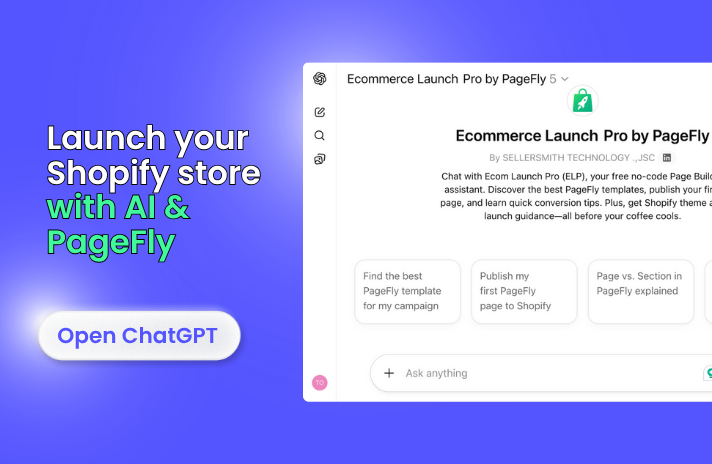
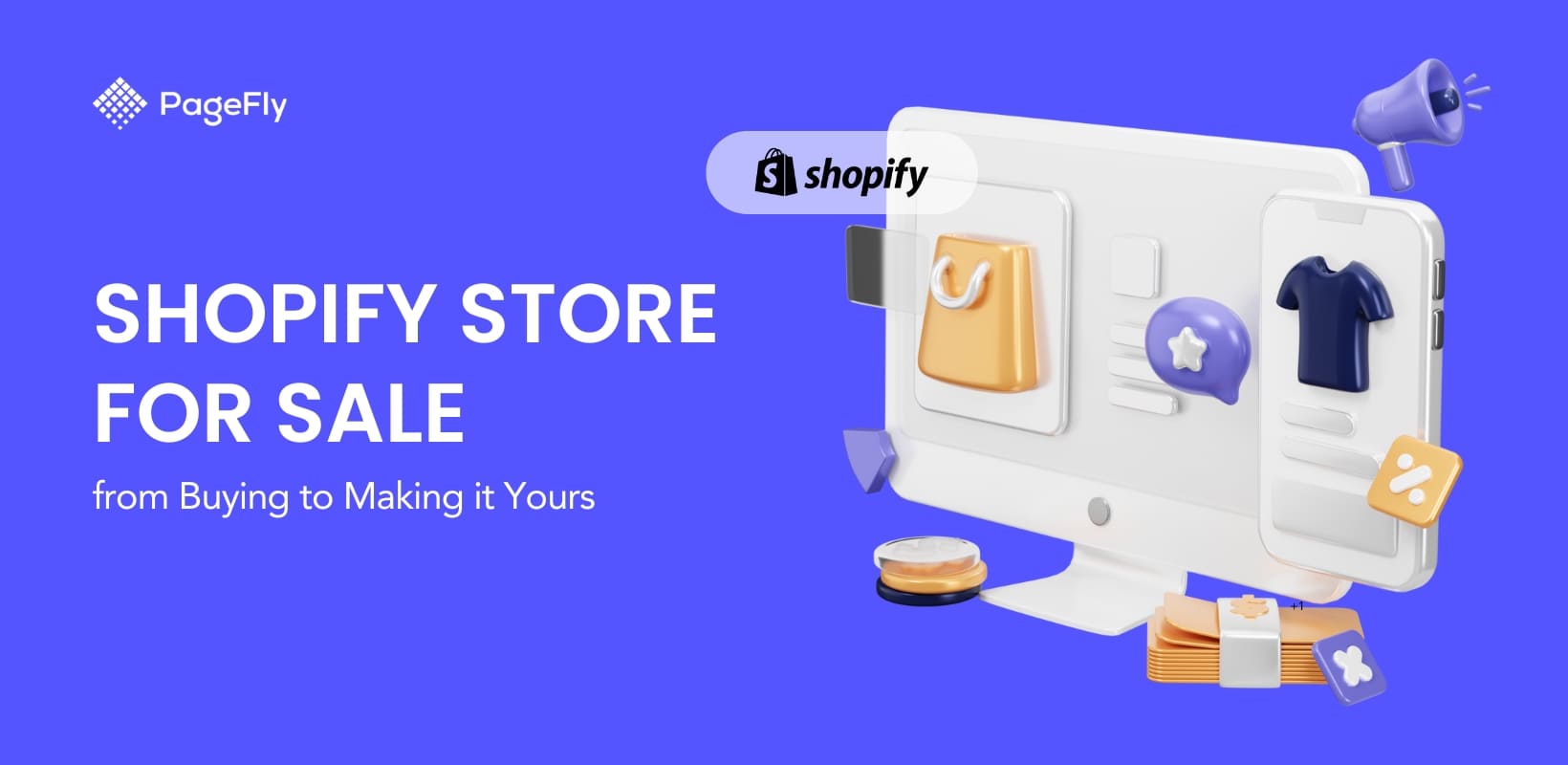

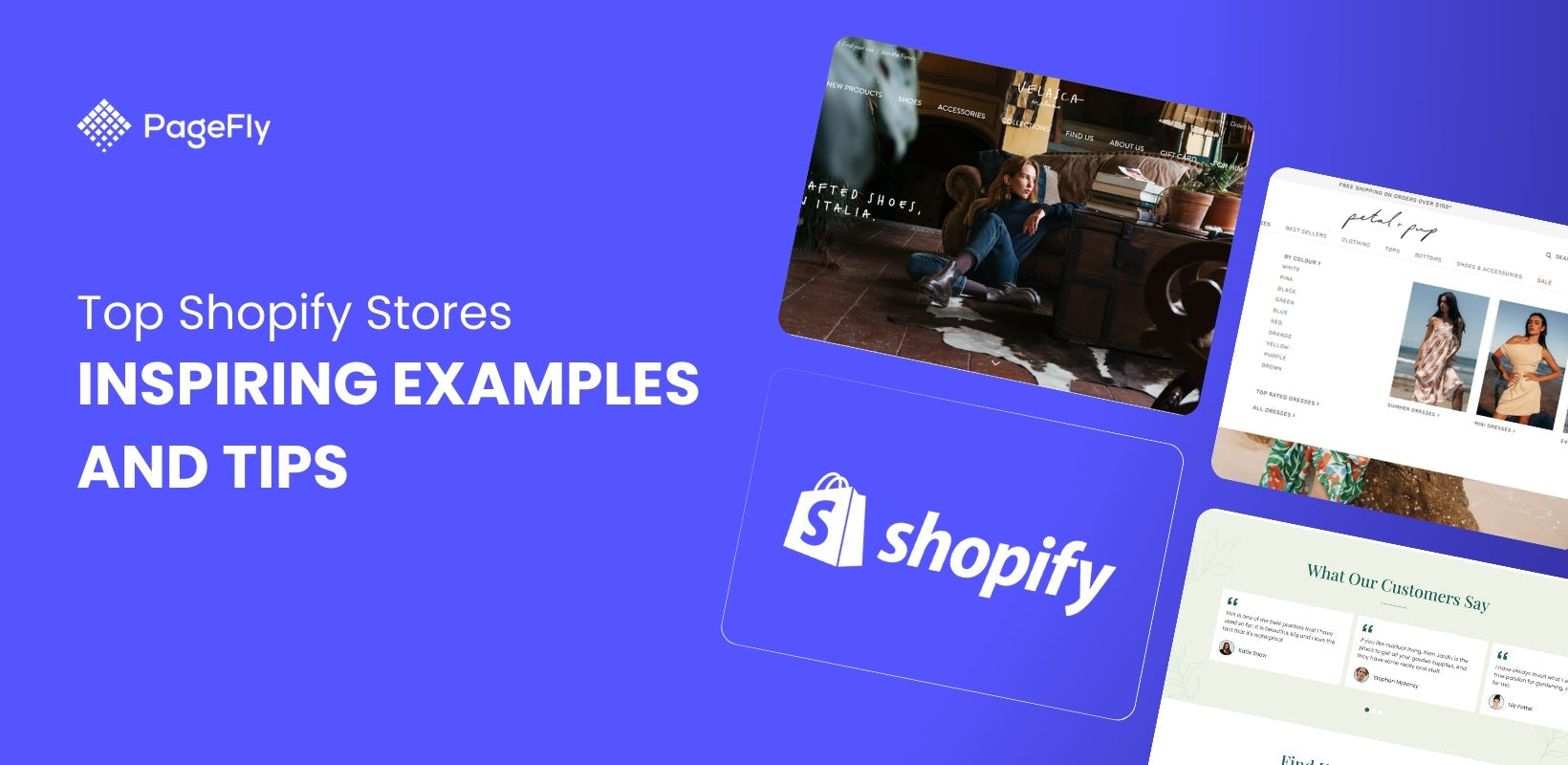
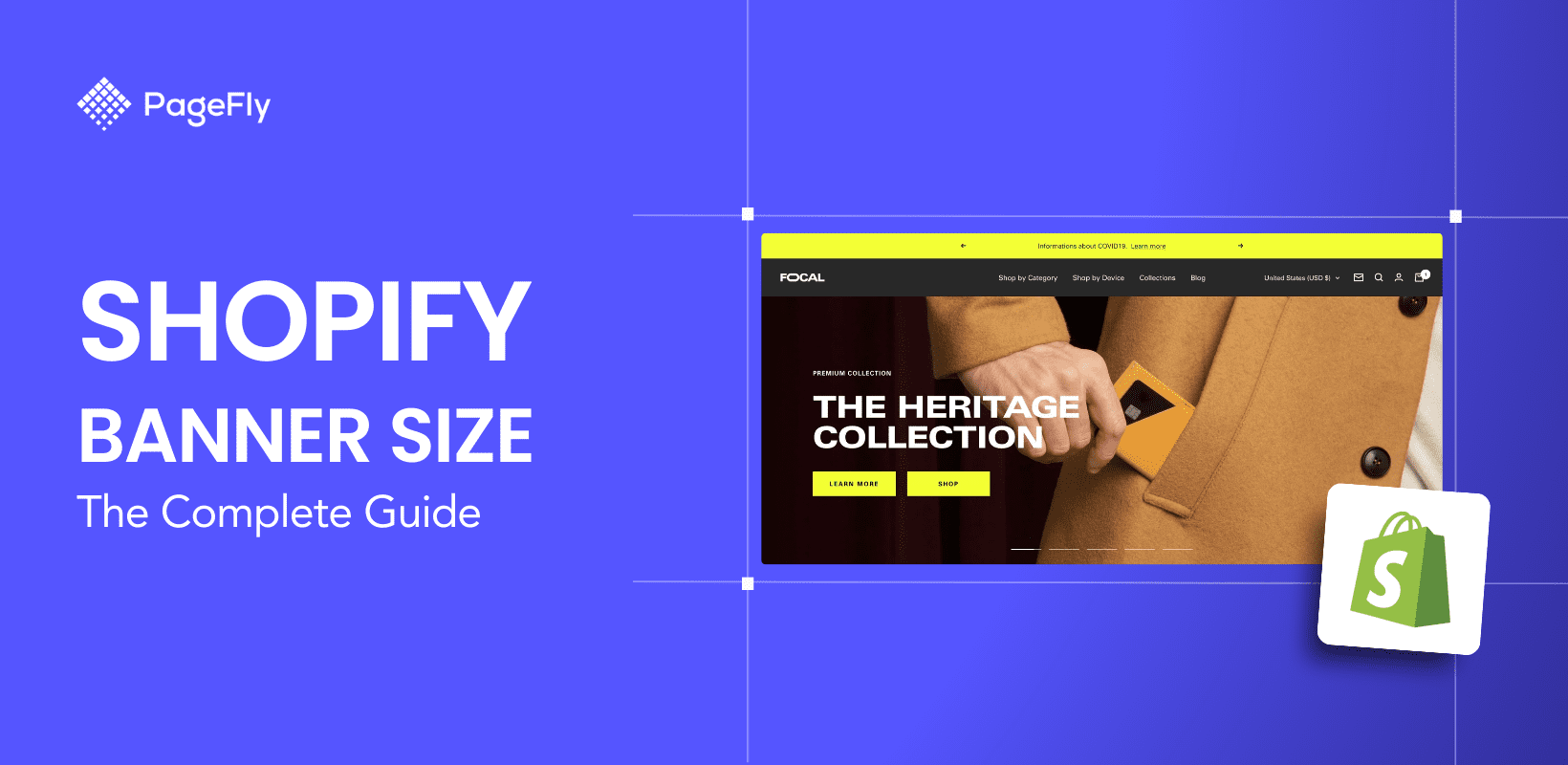
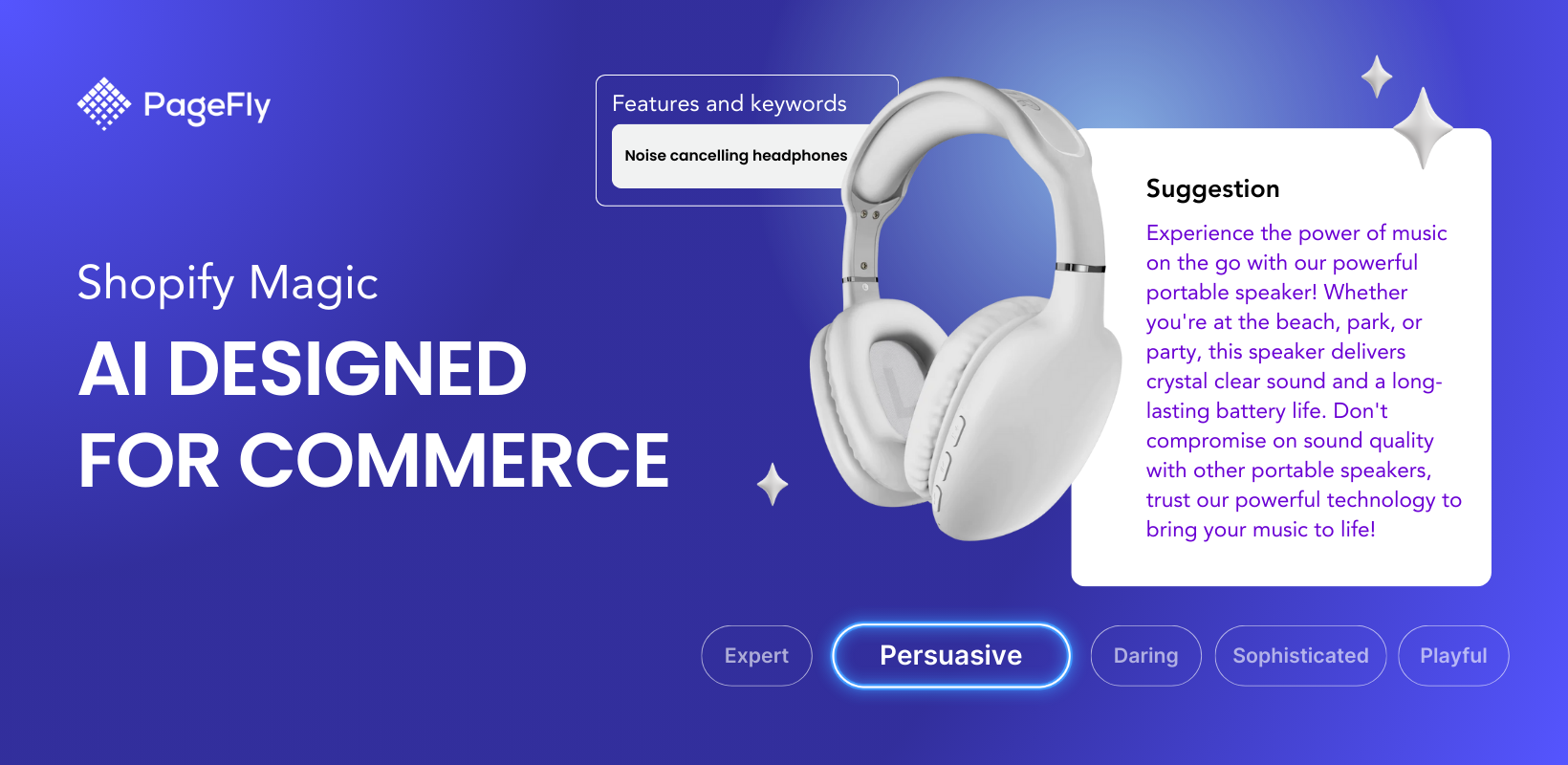
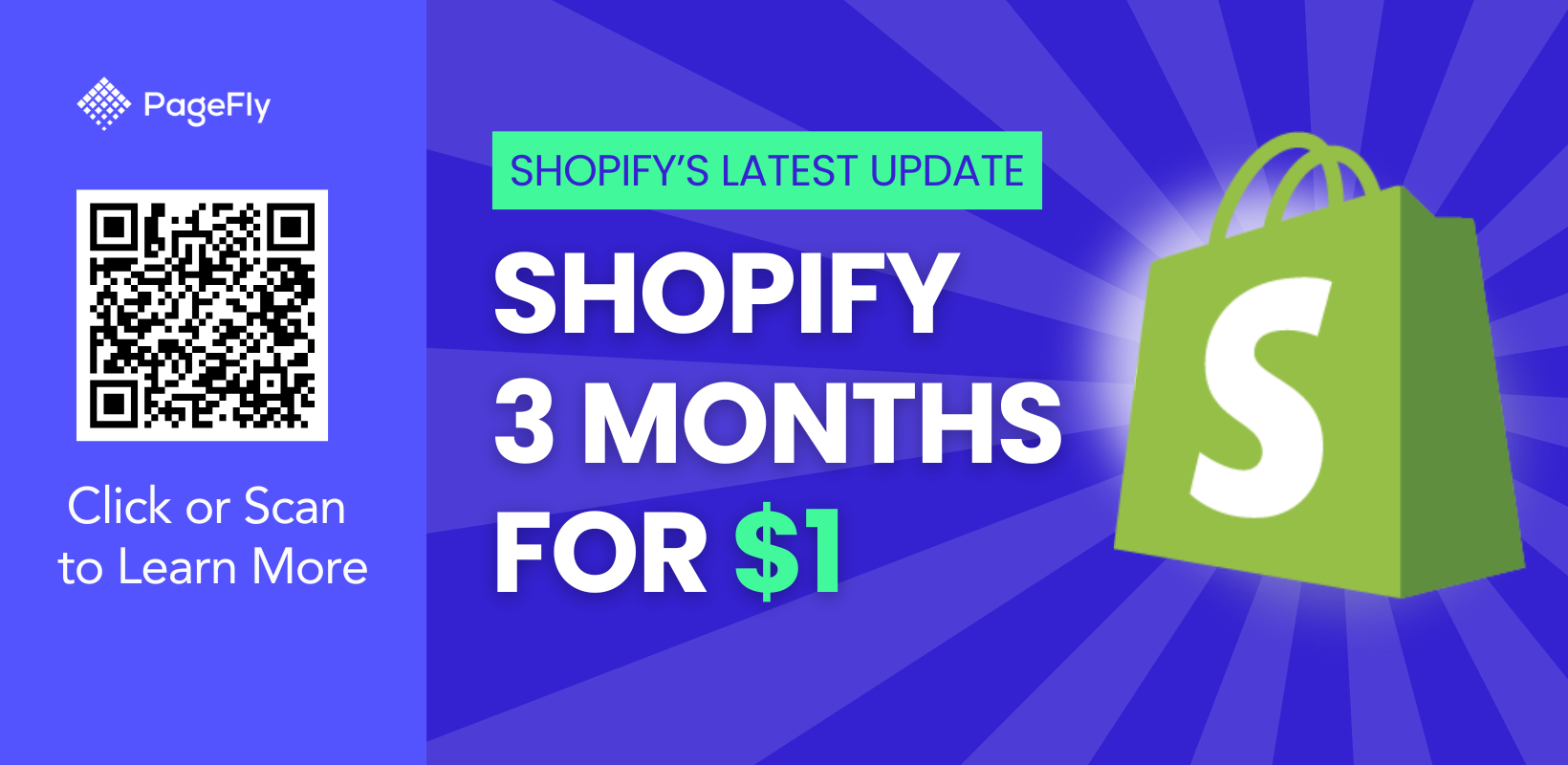
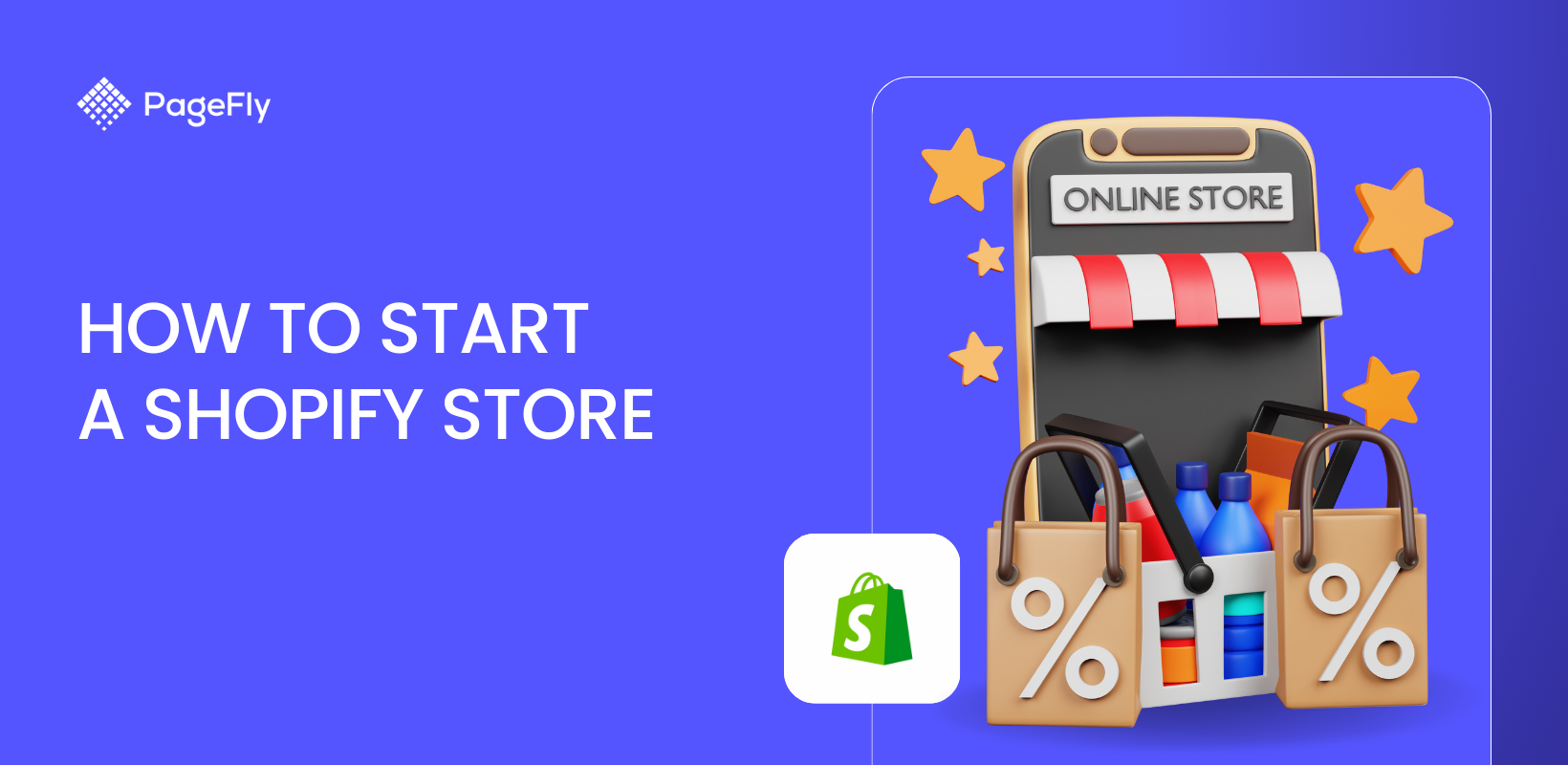
![27 Best Shopify General Stores + Complete Strategy Guide [2025]](http://pagefly.io/cdn/shop/articles/Best_Shopify_General_Stores_2f9d09f2-7c38-4da9-a495-e9f4898ddd68.jpg?v=1757271936&width=1640)
